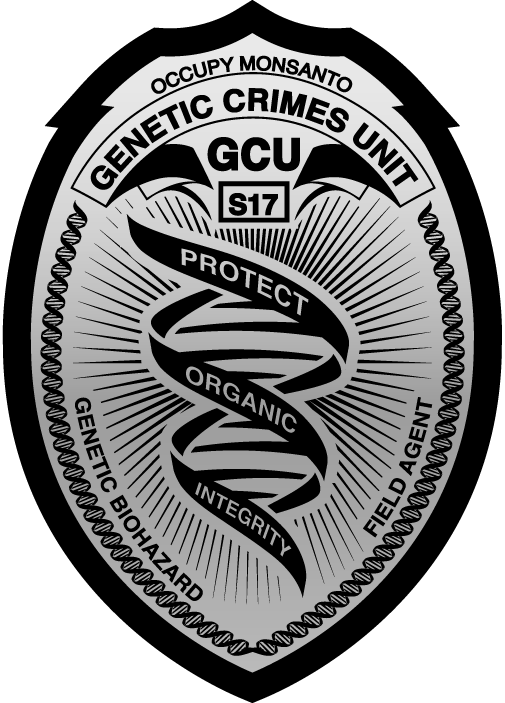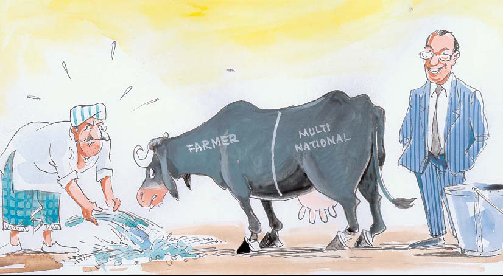|
CBD / COP 11
|
|||||||||||||||||||||
|
11th Conference of the Parties to the Convention on Biological Diversity, held in Hyderabad, 8 - 19 October 2012 |
|
World Food Sovereignty Day - Agricultural Biodiversity Feeds the World
Agricultural biodiversity provides food, improves health and well-being and regenerates the environment For more, see CBD Alliance Briefing for COP 11 on Agricultural Biodversity www.cbdalliance.org/cop11-briefing-notes/
Recommendations to COP 11 on Agricultural Biodiversity
Parties at
COP11, must:
Reconfirm the
importance of agricultural biodiversity and the central role of
small-scale food providers in developing and maintaining it. The
conservation and sustainable use of agricultural biodiversity are
core issues in both the CBD and ITPGRFA and is the priority of the
CGRFA. (Article 8j of the CBD and Articles 5, 6 and 9 of the ITPGRFA
and the MYPOW of the CGRFA). The provisions of Farmers’ Rights
and related measures require internationally recognised compliance
mechanisms to compel parties to recognize, respect, provide policy
legislations for implementation. Conversely UPOV, WTO, WIPO and
TRIPS provisions have international legal measures to protect and
enforce breeders rights. CBD resolutions in 2002 and 2007 asked for
studies on Farmers’ Rights but nothing has yet been produced.
Resolve to
scale up commitments to implementing the Decisions that would
conserve and regenerate agricultural biodiversity in situ, in local
food production and harvesting systems.
There
is a need for a renewed commitment to focus on in situ conservation
and development of domesticated species by women and men small-scale
food providers. While ex situ and protected area approaches may
serve for the conservation of undomesticated species, domesticated
biodiversity needs different approaches and governance. The CBD
needs to recognize that the conservation, development and
sustainable use of domesticated species will only take place through
in situ measures. Parties must recognise findings in relevant
assessments e.g. IAASTD and reinforce efforts to implement relevant
plans of action of the CBD and FAO that prioritise in situ
conservation of agricultural biodiversity.
Retain important
Decisions, for example in relation to maintaining the moratorium on
GURTs.
COP must reject proposals to retire the paragraphs related to GURTS
in Decision VII/3 as summarised in documents UNEP/CBD/COP/11/20 and
UNEP/CBD/COP/11/INF/1. GURTS undermine access to genetic resources
and the ability to conserve and develop these resources in situ.
Rather, Parties should call for an analysis of all measures used by
the seed industry to restrict re-use of seeds. For example, carrots,
broccoli, cauliflower seeds planted in the Philippines Cordilleras
cannot be resown and have to be bought from the agrochemical
corporations every season. They are not considered to contain GURTS
but their use is similarly restricted. Parties should therefore call
for a strengthening of the moratorium on GURTs to include any
restrictive technologies, practices (including
gene silencing technologies),
laws and measures that restrict access to agricultural biodiversity
in
situ.
Regulate,
transform
or prohibit any systems, methods, processes or technologies, which
might damage
agricultural biodiversity and related ecosystem functions. The
CBD
should review intellectual property regimes of any type and call for
them to be outlawed if they counter the CBD’s goals and
principles. Perverse incentives of all kinds should similarly be
evaluated and prohibited by Parties. The CBD should declare
a ban or moratorium in the use of new plant varieties, especially
GMOs and the products of synthetic biology that have the potential
to destroy agricultural biodiversity and
cause environmental degradation.
Renew commitments
to related conventions and UN bodies, especially FAO, which defend,
develop and support the conservation and sustainable use of
agricultural biodiversity. Parties
should call for Agricultural
Biodiversity and the protection and support for those who defend and
develop it in situ, to be central to the International Decade on
Biodiversity,
Further, Parties should call
on FAO to strengthen its work on the joint POW on Agricultural
Biodiversity; the MYPOW of the CGRFA, especially the preparations
for the State of the World’s Biodiversity for Food and
Agriculture.
|
 From ECO 17 October 2012
From ECO 17 October 2012